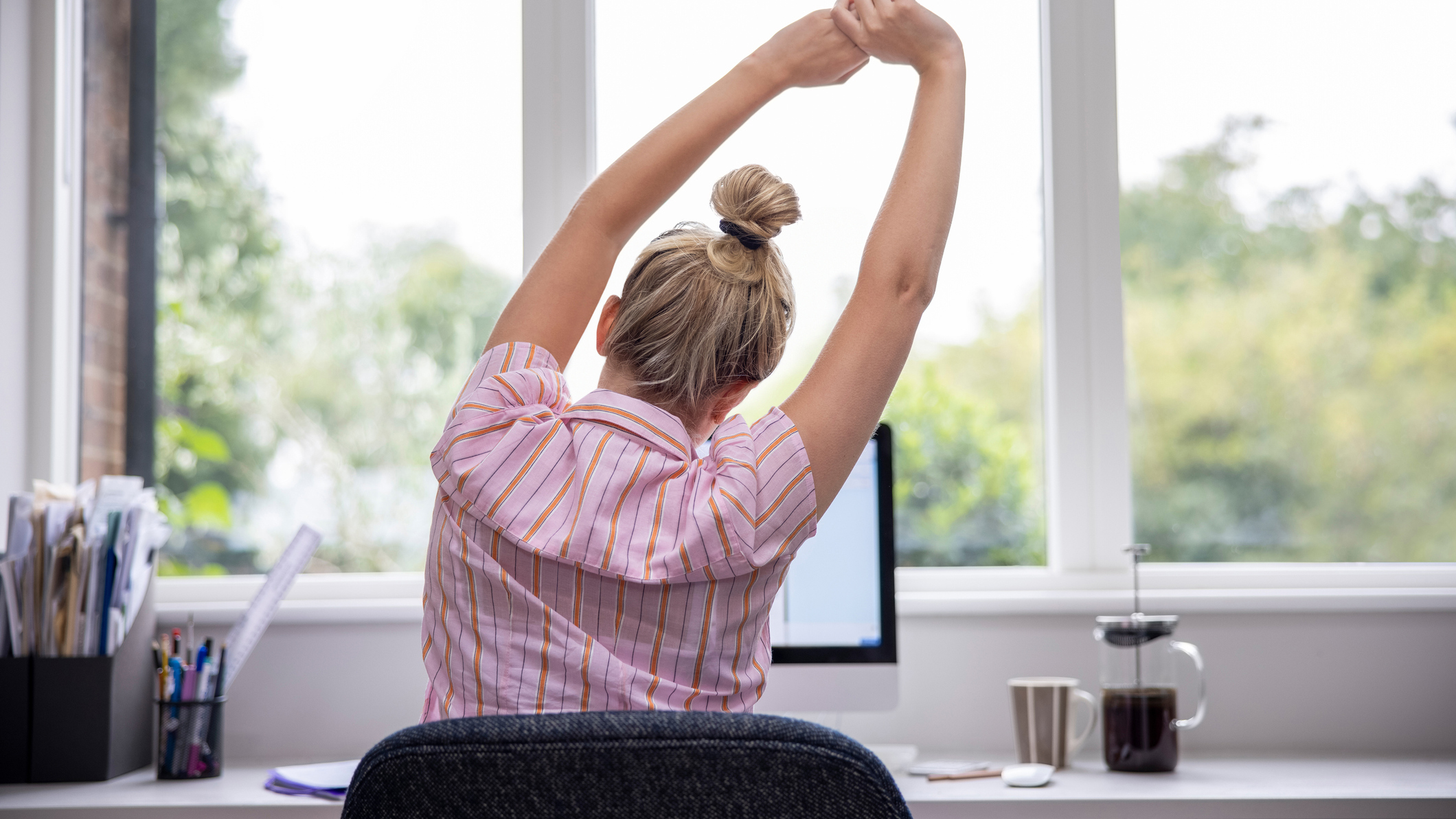Stay healthy while working from home: Fix your posture, neck pain and more
How to work from home safely, with stretching exercises, tips to stay active at home, and more


Start your week with achievable workout ideas, health tips and wellbeing advice in your inbox.
You are now subscribed
Your newsletter sign-up was successful
Have you been working from home as a result of the global health crisis? If so, you may have a desk, monitor and office chair, but your home work environment is still likely to cause you some problems. Whether your shoulders and neck are feeling sore and stressed, you're lacking natural light or you're just not moving as much without your commute, it's a common problem even one year into the pandemic.
According to a survey from the UK's Royal Society for Public Health, 44% of women and 29% of men have been experiencing worsened back, neck or muscle pain since they started working from home. If you're still crouching over a laptop, sat on a dining chair, you could be seriously harming your spine without proper ergonomic equipment.
To start with, make sure you've got a good chair for working – if in doubt, our shopper's guide to the best office chair can point you in the right direction. Generally speaking, it needs to swivel, adjust its height, have back rests, good lumbar support and be built to last. You can also pick up one of the best posture correctors to help keep yourself up straight.

We're also moving less than ever: with no commute to speak of, and no reason to leave the house before the workday, home workers are at risk of developing a highly sedentary lifestyle. Studies have found physical inactivity is a predicator of slow, long-lasting chronic diseases, as muscle wastes away through lack of use and our weight balloons at having home comforts so close to hand.
Simona Zacharova, Osteopath and Clinical Lead at Vitrue Health, says: "Whether that’s because of a cancelled commute or a busier schedule, 46% of home workers report taking less exercise now than they did when they were office-based. The good news is that even minor adjustments to some of your everyday tasks could make a big difference to your health.
"The key to staying healthy when you’ve got a packed schedule is to use your time effectively and efficiently. This means adding in body-weight exercises and heart-rate-increasing movement whenever you have a spare minute."
Simple exercises like squats and push ups – even 10 repetitions of both these exercises every hour – can keep the circulation going in your body and prevent eventual muscular atrophy, as can the best back workout. You can also try Simona's two-minute stretching exercises, which should see off undue stress in your shoulders and back:
Start your week with achievable workout ideas, health tips and wellbeing advice in your inbox.
- Gently lift both your shoulders about 2 inches. Slowly relax them down as far as possible.
- Hold one arm across your body and use the other arm to push your elbow into your chest for 10 seconds.
- Swap arms and repeat the stretch.
- Release, let your arms hang down as far as possible.
- Gently rotate your shoulders forwards and backwards five times.
- Notice the tension melting away.
Finally, there's the issue of natural light. We need natural sunlight to both boost our mood and get vitamin D into our bodies, but we're often squirrelled away in our homes i areas without this natural light.
Simona says: "If you don’t have a window in your ‘office’, consider ordering a special lamp that replicates natural daylight and can help alleviate tiredness." Our guide to the best SAD lamps, which replicate the effect of sunlight, can help you do just that.
Matt Evans is an experienced health and fitness journalist and is currently Fitness and Wellbeing Editor at TechRadar, covering all things exercise and nutrition on Fit&Well's tech-focused sister site. Matt originally discovered exercise through martial arts: he holds a black belt in Karate and remains a keen runner, gym-goer, and infrequent yogi. His top fitness tip? Stretch.
